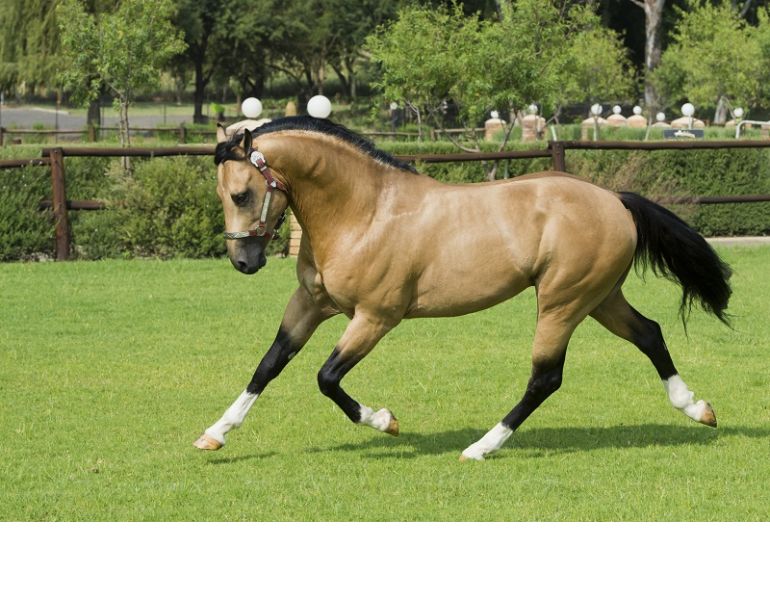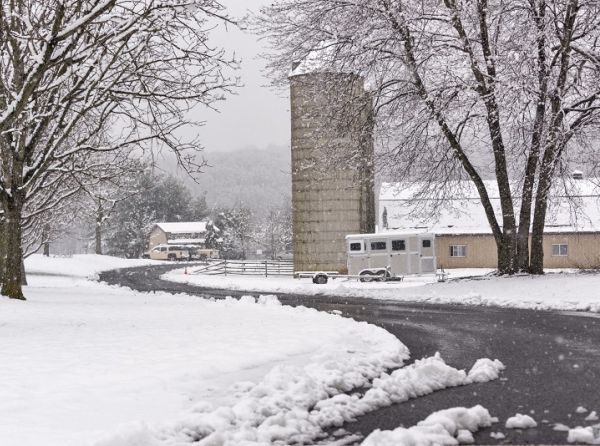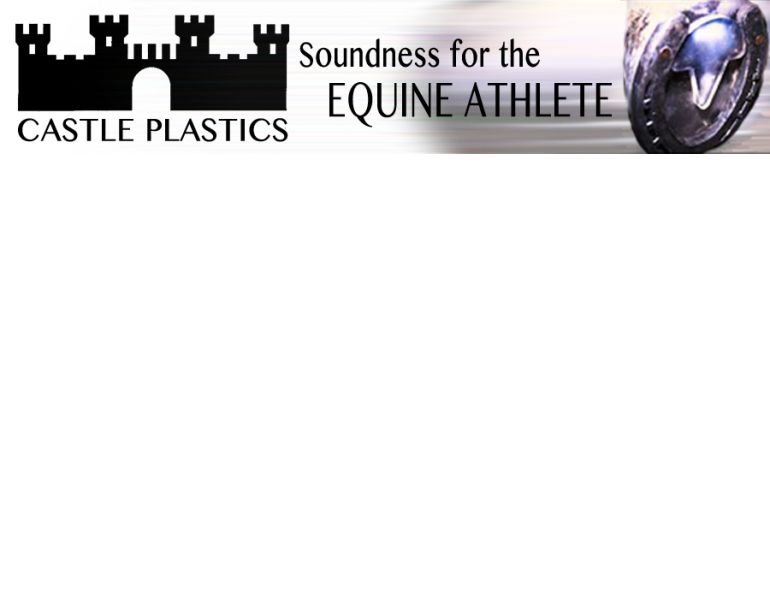By Dr. Nerida Richards
Like humans, horses are classified as monogastrics (an animal with a single-chambered stomach); however, unlike humans, horses have a highly specialised and enlarged cecum and colon, collectively known as the 'hindgut'. In this article, we investigate the role the hindgut plays in maintaining overall health, the implications of an unhealthy hindgut, and strategies for keeping your horse's hindgut healthy.
What role does the hindgut play in maintaining overall health?
The hindgut plays some important roles in horse health, including:
Fibre Digestion: Horses don't have the enzymes necessary to digest fibrous feeds like pasture and hay. However, in their hindgut they house many millions of bacteria that exist in a symbiotic relationship with the horse. The horse provides them with somewhere warm and moist to live that has a constant supply of fibrous 'food' which the bacteria digest via a process of fermentation. In return, the bacteria give the horse a majority of the energy contained in the fibrous feeds in the form of volatile fatty acids (VFAs), which the horse absorbs and burns as fuel for muscle and organs.
Hydration: The hindgut and the fibrous material within it provide a reservoir of water for the horse which may be absorbed when needed to keep the horse hydrated.
Electrolyte Balance: The hindgut and the fibrous feeds within it also serve as a resource of electrolytes that can be absorbed when needed.
Vitamin Supply: The bacteria that ferment fibrous feeds also produce vitamins that may be absorbed and used by the horse, including B-group vitamins like thiamine (vitamin B1) and biotin, as well as vitamin K.
Related: The Beginner's Guide to thte Equine Digestive System
What are the implications of an unhealthy hindgut?
If the hindgut is compromised, many health problems can arise, including:
Colic: Too little fibre in the diet, dehydration, accumulation of dirt and sand, and fermentation of grain in the hindgut are just a few situations that may lead to serious cases of colic.
Weight Loss: An unhealthy hindgut that does not have access to ample forage or has unbalanced bacterial populations due to the fermentation of grain can lead to a reduced feed use efficiency and weight loss.
Diarrhea: A hindgut that is irritated by the accumulation of dirt and sand or parasites, rapid changing of diet ingredients, too little forage or the excessive fermentation of grains can all lead to diarrhea.
Vitamin Deficiency: The fermentation of grains or prolonged use of oral antibiotics can disturb bacterial populations in the hindgut which in turn leads to a reduced production of vitamins like the B‐group vitamins and vitamin K.
Loss of Appetite: Allowing grains to be fermented in the hindgut can lead to the production of thiaminase, an enzyme that destroys the vitamin thiamine (B1). A thiamine deficiency can then lead to a loss of appetite.
Altered Behaviour: Studies have shown that horses with acidic hindgut contents resulting from the fermentation of grain are more likely to exhibit abnormal behaviour.

Like humans, horses have a single-chambered stomach; however, unlike humans, horses have a highly specialised and enlarged cecum and colon, collectively known as the 'hindgut'.
How can you keep your horse's hindgut healthy?
Follow these seven tips for keeping your horse's hindgut functioning normally:
1. Feed plenty of forage. A healthy hindgut is almost completely dependent on feeding enough forage. Bulky forage is needed to keep the hindgut full to prevent it from physically collapsing on itself or twisting up in a severe case of colic. Healthy bacterial populations are also dependent on having lots of fibre available for fermentation. As a general rule, you should feed a minimum of 1 kilogram of fibre per 100 kilograms of bodyweight in forage per day (1 percent of bodyweight). The more forage you can feed the better, so unless you have a good reason for limiting your horse's forage intake, feed a completely forage diet and only use grains when absolutely necessary. Note: If you are concerned about a weight disadvantage in racing and other performance horses due to large amounts of forage being carried in the gut, reduce the amount of forage being fed slightly in the days leading up to a race or event.
2. Feed cooked grains to prevent grain being fermented in the hindgut. If you feed grains, always use a cooked grain (i.e. grain that has been steam flaked, micronised, extruded, or boiled), as uncooked grains, with the exception of oats, are poorly digested in the horse's small intestine and will almost certainly end up being fermented in the hindgut. Oats may be fed uncooked.
3. Feed grains in small meals. Never feed more than 0.5 kilograms of grain per 100 kilograms of bodyweight (0.5 percent of bodyweight) in any one meal. Feeding grains in larger meals will make the feed travel quickly through the small intestine and will push undigested grains into the hindgut where they will be fermented.
4. Make sure your horse is drinking enough water. Water intake is crucial for maintaining a healthy hindgut. Dehydration will result in the hindgut contents drying out too much and can lead to problems like impaction colic. If you live in a cold climate offering your horses warmed water may help to increase their water intake. If you suspect your horse is not drinking enough water, try adding molasses or other flavourings your horse might like to the water. Make sure horses feel safe around their watering point and that they always have access to water and a salt lick.

Hydration is crucial for maintaining a healthy hindgut, so make sure your horse is drinking enough water.
5. Remove sand and dirt from the hindgut regularly. If your horse is grazing in drought conditions or is housed in a dry lot or sand yard, you should feed psyllium husk on a regular basis to remove sand and dirt from the hindgut so it does not accumulate to the point where it causes digestive health problems. Feeding 50 grams of psyllium husk per 100 kilograms of bodyweight for 5 days in every month will help to remove any sand or dirt that may have accumulated in the hindgut.
6. Make all dietary changes slowly. Sudden changes in feed can upset the balance of bacteria in the hindgut or can lead to diarrhea. Making dietary changes slowly over a period of 7 to 14 days, taking longer for more dramatic changes, will help to reduce or eliminate any negative impact of a new diet. For example, if you were changing from timothy hay to a blend of timothy and alfalfa, you could do this over 7 days. If, however, you were changing to a diet that included grains, you should introduce the grains slowly over 14 days or longer depending on how well the horse adapts to the new diet.
7. Avoid the prolonged use of oral antibiotics. When possible, try to use injectable antibiotics. If your horse does have to be on oral antibiotics, feed as much forage as possible during and following the treatment to maintain an environment in the hindgut that favours the more beneficial fibre fermenting bacteria. Note: Most 'probiotics' have limited usefulness when it comes to repopulating a horse's hindgut following antibiotic treatment. Many probiotics contain Lactobacillus spp bacteria which are useful for killing off pathogenic bacteria, but are not really what you want your horse's hindgut populated with.
When you are feeding, always think about the hindgut!
When you are making feeding choices for your horse, you should always be thinking about how they will impact the hindgut. Following the seven tips listed above will ensure your horse's hindgut functions well to provide your horse with a good supply of energy and beneficial vitamins, and will help avoid problems such as colic, loss of appetite, diarrhea, and abnormal behaviour.
Related: Timing of Meals for Horse Health and Performance
Article reprinted with permission from FeedXL
Dr. Nerida Richards, PhD, is the Managing Director and Principal Consultant at Equilize Horse Nutrition Pty Ltd, a company that provides independent, professional advice in all areas of equine nutrition. She is also the resident equine nutrition specialist for FeedXL. For more information, please visit www.FeedXL.com
Main Photo: Shutterstock/Valeri Vatel




























